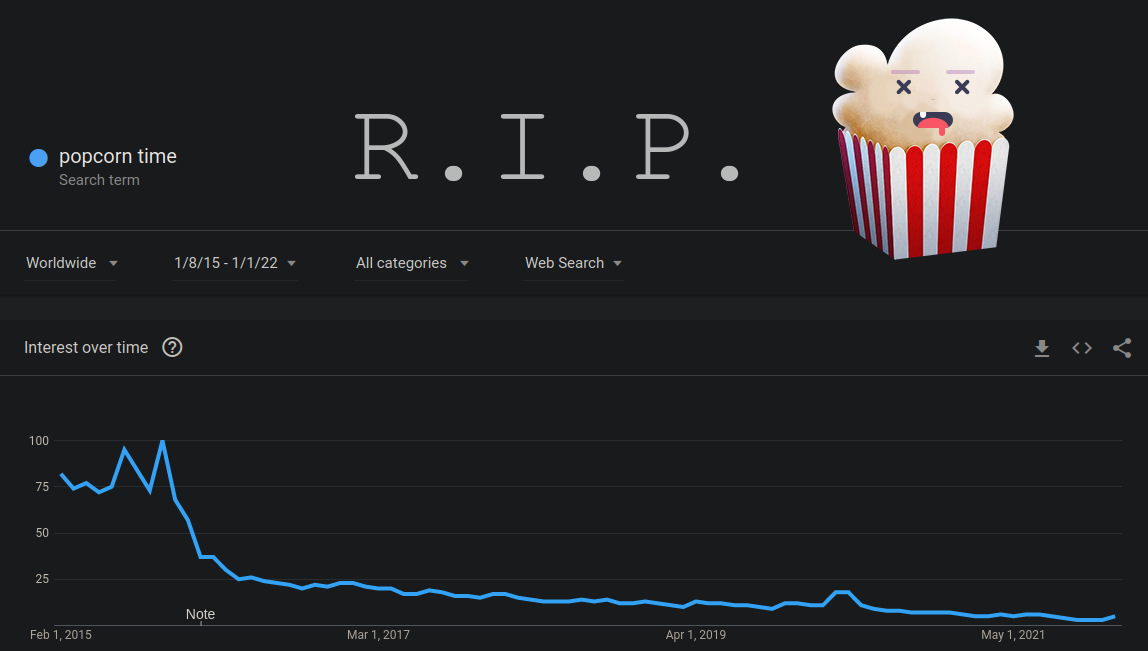
Popcorn Time, a streaming service that was both beloved and hated as the “Netflix of piracy”, has been shut down.
The tool gained vast popularity for the ease with which it allowed users to stream pirated films and TV shows for free. Unlike more complicated or risky services, users were able to easily access what they wanted to watch, with the ease of streaming content on Netflix.
But that ease also drew ire from the streaming service with which it was so often compared. After Popcorn Time was launched in 2014 and quickly surged to popularity, Netflix warned about the threat it posed and its creators quickly left.
The open-source nature of the service meant that other developers could pick up the tool and host it themselves, however. They continued to do so in the years following, allowing it to evade law enforcement.
But Popcorn Time now appears to be dead, according to a message posted on its website. It included the words “RIP”, a dead version of its usually happy popcorn logo, and a graph showing the reduction in interest in the service in recent years – suggesting it was killed not by legal threats, but a lack of users.

The chart is also a reference to the service’s history with Netflix. In 2015, Netflix showed investors a chart demonstrating the vast interest in piracy, with its chief executive saying that piracy is “one of [Netflix’s] biggest competitors”.
Unlike the legitimate version of Netflix, Popcorn Time did not work by hosting its own content and providing that to users. Instead, it was a frontend for torrents, allowing users to access other people’s pirated videos through a much easier interface.
It was that ease that led to its popularity after launch in 2014. But it also meant that it was pursued by groups including the Motion Picture Association of America, which in turn led to the departure of its creators and the flourishing of other versions.
The legal status of the app itself was often under dispute, because the app and its creators did not host pirate material itself. The app often found itself blocked and had domains confiscated, meaning that it often moved around the internet.







